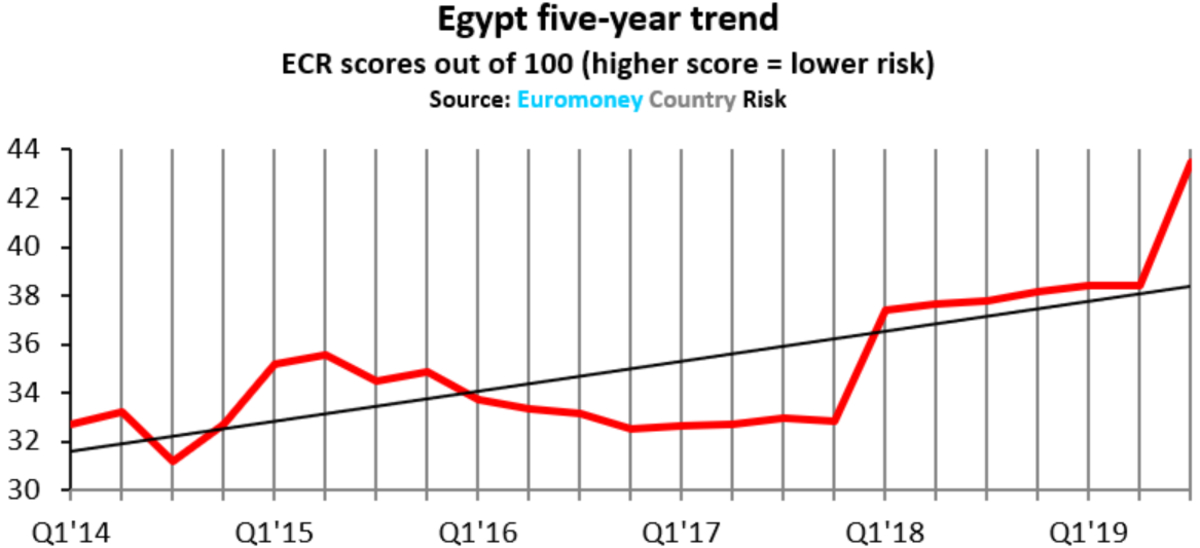Euromoney sees Egypt’s risk profile among most improved

Euromoney sees Egypt’s risk profile among most improved: Egypt’s ranking in Euromoney’s global risk table has improved to 93 out of 165 countries, up from 98 in Euromoney’s November update to its risk table. Egypt’s score out 100 (with 100 being the least risky) is 43, up from 38 in the November update. Egypt and Romania have been singled out by Euromoney as the countries whose risk profile has seen good improvement over the long term, particularly when compared to other emerging markets, whose risk profiles on the whole have been improving. Thanks largely to a stabilizing economy, and improved risk trends, both countries are being considered “solid bets for 2020” in Euromoney’s update to its global risk table.
Macro indicators all point towards stabilization: “Investment is responding to the reforms introduced under President Abdel Fattah El Sisi and guided by a completed three-year lending program from the IMF,” writes M Nicolas Firzli, chair of the Singapore Economic Forum and advisory board member of the World Bank Global Infrastructure Facility. He notes in an explainer on the report’s analysis for Euromoney that real GDP growth is seen edging close to 6% in 2020, after slipping below 3% in 2012. “Inflation and unemployment are down, and the government has utilized the dissolution of fuel subsidies – which passed without unrest – to increase wages and pensions, while the fiscal deficit is improving as tourism increases and borrowing costs decline.”
Firzli even lauded the the EGX, which has been struggling with low volumes of late. He noted that the Egyptian Exchange of Cairo and Alexandria are “now thriving again,” praising the “highly innovative short-term securitization bond program for stockbrokers, asset managers and other non-bank entities.”
Part of a trend with EMs: “No fewer than 124 countries, more than 70%, have seen their risk scores improve over time, with higher scores (indicating less risk) on a five-year trend,” says Euromoney. Countries such as Serbia (now 72nd), Honduras (78nd), Ethiopia (79th) and Cote d’Ivoire (95th) have shown consistent long-term improvement in security risk.